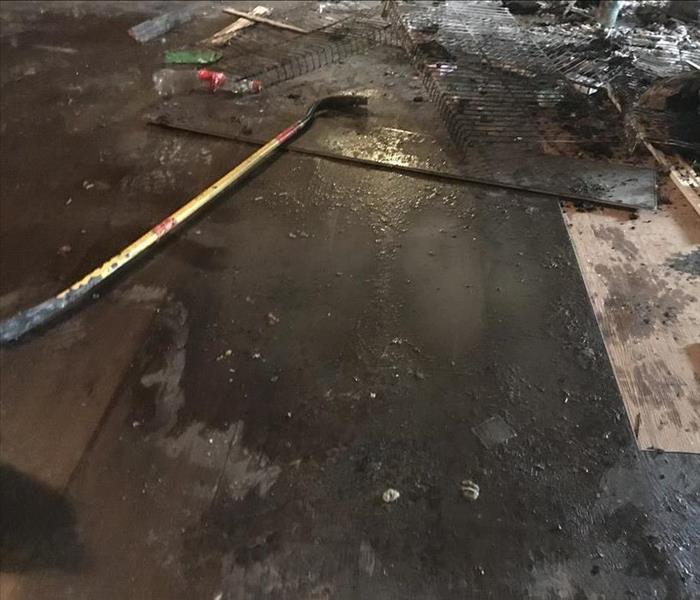Why Fires Often Result in Water Damages
2/2/2021 (Permalink)
 Above, water damaged the interior of a home that had a fire in the kitchen area. Water and fire damage go hand-in-hand!
Above, water damaged the interior of a home that had a fire in the kitchen area. Water and fire damage go hand-in-hand!
House fires aren’t an uncommon occurrence in the Statesville and Mooresville communities; in fact, we usually get at least one or two fire-related calls a week. But in most instances, we first have to send out our water technicians before we send our fire-cleaning team.
Fire Damage Creates Water Damage
As everyone knows, one of the most common ways to extinguish a fire is to douse it with water. (Be aware that water won’t put out every kind of fire.) And of course, the amount of water needed is proportional to the size of the fire, so a large fire is going to need a lot of water.
That’s why house fires tend to have significant water damage—firefighters have to use a lot of water to put them out. In commercial fires, water damage can also occur when even a small fire triggers the sprinkler system. As a result, affected homes have two types of damages that need to be addressed.
Mitigating Your Water Damage
When we respond to a home that has both fire and water damage, we first dispatch our water mitigation team. Because unmitigated water damage can lead to mold and additional structural damage, it’s imperative that it becomes a priority. After that’s been addressed, we’ll follow up with our fire damage cleanup team.
Expecting the Unexpected
Unfortunately, disaster strikes when and where we least expect it. And in many cases, damages can be extensive, requiring multiple phases in the restoration process. While it’s not possible to prevent every disaster, it’s a good idea to plan and prepare for worst-case scenarios. We recommend you put together contingency plans and talk with your local insurance to make sure you’re properly covered.






 24/7 Emergency Service
24/7 Emergency Service